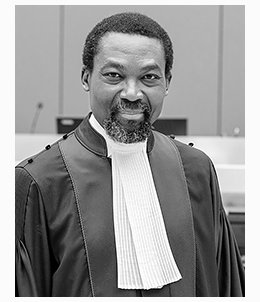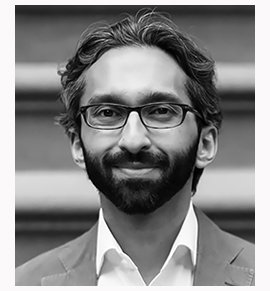 In this episode I speak with Boyd van Dijk, currently a McKenzie Fellow at the University of Melbourne, and formerly a fellow at the Lauterpacht Centre for International Law and the University of Cambridge. We talk about his new book, Preparing for War: The Making of the Geneva Conventions, which is a detailed history of the years-long process of negotiations that resulted in the treaties of 1949. We discuss some of the myths surrounding the history of the conventions, as well as the tensions and conflicts not just between parties to the negotiations, but also within the delegations and among different departments of each of the parties, caused by conflicting interests, values, and paradoxes within their positions. We dig into the weeds of some of the different aspects of the negotiations, and discuss why this history should matter to how we think about and understand the operation of the conventions today. A fascinating conversation that only scratches the surface of his book!
In this episode I speak with Boyd van Dijk, currently a McKenzie Fellow at the University of Melbourne, and formerly a fellow at the Lauterpacht Centre for International Law and the University of Cambridge. We talk about his new book, Preparing for War: The Making of the Geneva Conventions, which is a detailed history of the years-long process of negotiations that resulted in the treaties of 1949. We discuss some of the myths surrounding the history of the conventions, as well as the tensions and conflicts not just between parties to the negotiations, but also within the delegations and among different departments of each of the parties, caused by conflicting interests, values, and paradoxes within their positions. We dig into the weeds of some of the different aspects of the negotiations, and discuss why this history should matter to how we think about and understand the operation of the conventions today. A fascinating conversation that only scratches the surface of his book!
Materials:
– Preparing for War: The Making of the Geneva Conventions (2022).
Reading Recommendations:
– Giovanni Mantilla, Lawmaking Under Pressure: International Humanitarian Law and Internal Armed Conflict (2020);
– Nicholas Mulder, The Economic Weapon: The Rise of Sanctions as a Weapon of Modern War (2022);
– Jessica Whyte, “The ‘Dangerous Concept of the Just War’: Decolonization, Wars of National Liberation, and the Additional Protocols of the Geneva Conventions,” Humanity, Jan. 2019.
 A conversation with
A conversation with  In this episode I speak with
In this episode I speak with  In this episode I speak with
In this episode I speak with 


 In this episode I speak with Samuel Moyn, who is a Professor of Jurisprudence at Yale Law School and Professor of History at Yale University. Sam has written a number of books on issues at the intersection of history and international human rights, but we here discuss his most recent book, Humane: How the United States Abandoned Peace and Reinvented War. Taking off from an insight of Leo Tolstoy’s, the book provocatively explores how an increasing focus on the humanization of war may have made us more accepting of armed conflict, and thereby undermined the movement to constrain the resort to war. In our discussion we explore some of the historical accounts that form the premises of this argument, including the claim that IHL did little to make war more humane until after the Vietnam war, particularly in the history of Western conflicts with non-white peoples; how armed conflict become far more humanized in the so-called “global war on terror;” and how this increasing focus on humanizing war has resulted in a corresponding decline in efforts to constrain the resort to war. We dig into the nature and implications of this claimed inverse relationship, and what forces and actors he thinks help to explain the phenomenon, and end with the question of what might might be done, and by whom, to address the problem of this declining focus on preventing war – an urgent question in the circumstances.
In this episode I speak with Samuel Moyn, who is a Professor of Jurisprudence at Yale Law School and Professor of History at Yale University. Sam has written a number of books on issues at the intersection of history and international human rights, but we here discuss his most recent book, Humane: How the United States Abandoned Peace and Reinvented War. Taking off from an insight of Leo Tolstoy’s, the book provocatively explores how an increasing focus on the humanization of war may have made us more accepting of armed conflict, and thereby undermined the movement to constrain the resort to war. In our discussion we explore some of the historical accounts that form the premises of this argument, including the claim that IHL did little to make war more humane until after the Vietnam war, particularly in the history of Western conflicts with non-white peoples; how armed conflict become far more humanized in the so-called “global war on terror;” and how this increasing focus on humanizing war has resulted in a corresponding decline in efforts to constrain the resort to war. We dig into the nature and implications of this claimed inverse relationship, and what forces and actors he thinks help to explain the phenomenon, and end with the question of what might might be done, and by whom, to address the problem of this declining focus on preventing war – an urgent question in the circumstances. In this first episode of Season 3 of the podcast, I speak with
In this first episode of Season 3 of the podcast, I speak with  In the last episode of Season 2, I speak with
In the last episode of Season 2, I speak with  In this episode, I speak with
In this episode, I speak with 

 In this episode I discuss the legal issues raised in the Gaza conflict of May 2021, with Professors
In this episode I discuss the legal issues raised in the Gaza conflict of May 2021, with Professors